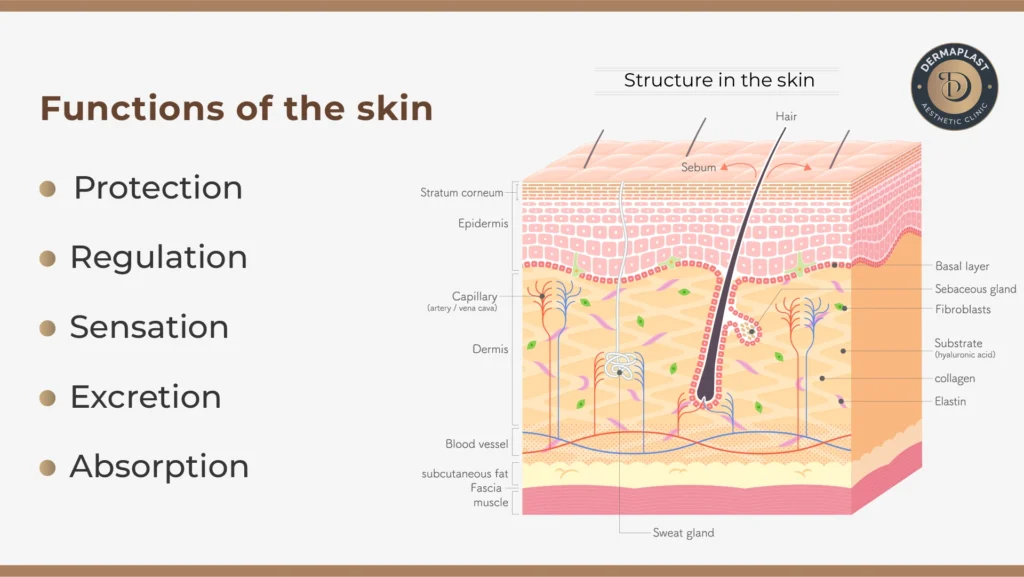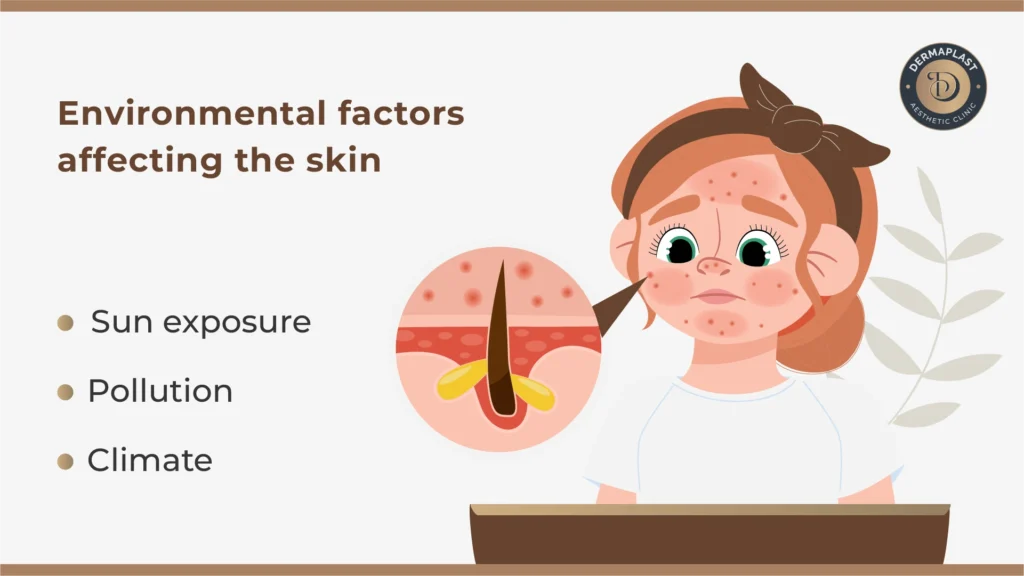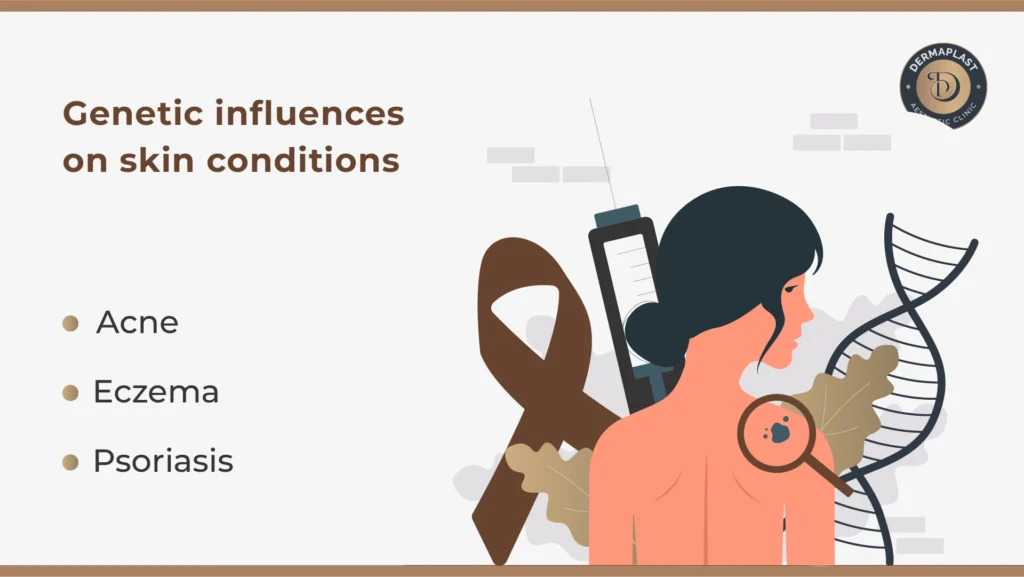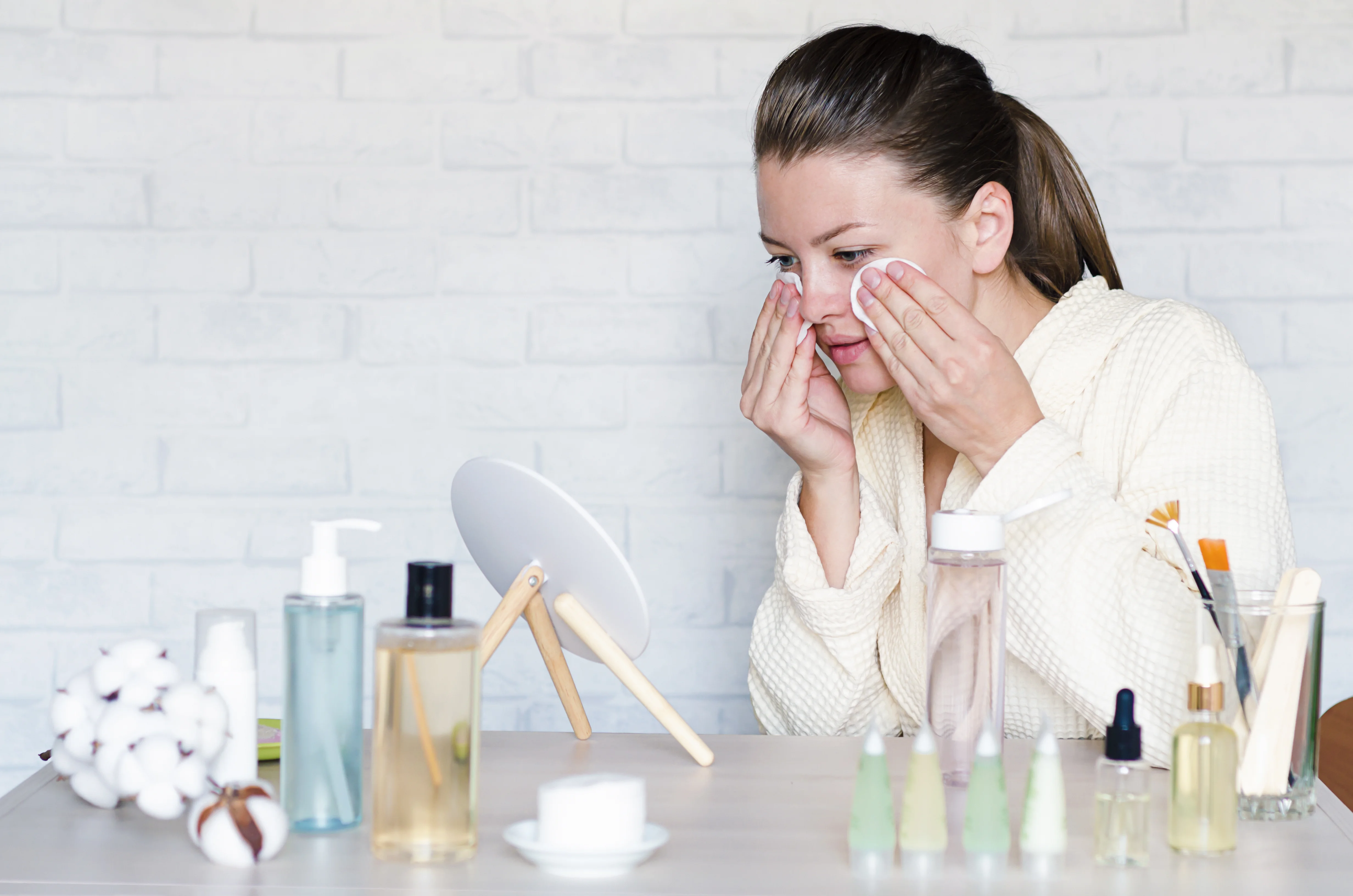“Good skin is a reflection of inner health.”
dermatologist in New Panvel: Your skin is the first thing people notice about you, and it plays a crucial role in your overall appearance and confidence. Taking care of your skin is not just about looking good; it’s about prioritizing your well-being. AndRadiant skin, the expertise of a dermatologist can make all the difference.
If you’re in Panvel and seeking top-notch skincare solutions A dermatologist in new Panvel can help you unlock the secrets to flawless skin while addressing specific concerns like acne, aging signs, or pigmentation issues. With their extensive knowledge and experience in diagnosing and treating various skin conditions, these experts are equipped to provide personalized solutions tailored to your unique needs.
Don’t let common skincare problems hold you back from feeling confident in your own skin. In our upcoming blog post, we will delve into the importance of skincare and explore how dermatologists in Panvel play a pivotal role in enhancing your skin health. So stay tuned for expert insights on achieving that healthy glow!
Understanding Skin Basics
The skin is an incredible organ that plays a vital role in protecting our body. Let’s delve into the basics of this remarkable organ.
Anatomy of the skin
The skin consists of three main layers: the epidermis, dermis, and subcutaneous tissue. Each layer has its own unique functions and characteristics:
- The epidermis is the outermost layer and acts as a protective barrier against external factors such as bacteria, UV radiation, and chemicals.
- Beneath the epidermis lies the dermis, which contains blood vessels, hair follicles, sweat glands, and nerve endings. It provides structural support to the skin.
- The subcutaneous tissue is the deepest layer and primarily serves as insulation and cushioning for underlying structures.
Functions of the skin
Our skin performs several crucial functions to maintain our overall health:

| Protection | The skin acts as a shield against harmful substances, pathogens, and UV rays. |
| Regulation | It helps regulate body temperature through sweating and dilation or constriction of blood vessels. |
| Sensation | Nerve endings in the skin allow us to sense touch, pain, pressure, heat, and cold. |
| Excretion | Sweat glands eliminate waste products from our body through perspiration. |
| Absorption | Certain substances can be absorbed through the skin. |
The Factors Influencing Skin Health
Environmental factors affecting the skin
Our skin is constantly exposed to various environmental factors that can impact its health. These include:

| Sun exposure | Overexposure to the sun’s harmful UV rays can lead to sunburn, premature aging, and an increased risk of skin cancer. |
| Pollution | Air pollution, such as smog and particulate matter, can clog pores and contribute to acne breakouts and dull-looking skin. |
| Climate | Extreme temperatures, humidity levels, and dry air can affect the skin’s moisture balance and exacerbate certain conditions like eczema or rosacea. |
Genetic influences on skin conditions
Genetics plays a significant role in determining our susceptibility to certain skin conditions. Some examples include:

| Acne | Studies have shown that individuals with a family history of acne are more likely to develop this common skin condition. |
| Eczema | Certain genetic variations can increase the risk of developing eczema, a chronic inflammatory condition characterized by itchy and inflamed skin. |
| Psoriasis | Genetic factors contribute to psoriasis, an autoimmune disease that causes red, scaly patches on the skin. |
The Dermatologist’s Approach to Healthy Skin
Initial consultation and skin analysis
When you visit a dermatologist in New Panvel, the first step towards achieving healthy skin is an initial consultation and thorough skin analysis. During this appointment, the dermatologist will assess your skin condition, listen to your concerns, and gather information about your medical history. This comprehensive evaluation allows them to understand your specific needs and develop a personalized treatment plan.
Customized skincare regimen and treatment plans
Based on the findings from the initial consultation, the dermatologist will create a customized skincare regimen tailored to address your unique skin concerns. This may include recommendations for cleansers, moisturizers, serums, or other topical treatments that promote healing and rejuvenation. They may suggest lifestyle modifications or dietary changes that can support overall skin health.
Innovative dermatological procedures and their benefits
Dermatology offers a wide range of innovative procedures that can enhance the health and appearance of your skin. Your dermatologist in new panvel may recommend treatments such as laser therapy, chemical peels, microdermabrasion, or injectables like Botox or dermal fillers. These procedures have proven benefits in addressing various skin conditions such as acne scars, wrinkles, hyperpigmentation, or uneven texture.
The Role of Nutrition in Skin Health
A balanced diet plays a crucial role in nourishing the skin and maintaining its health. By incorporating vital nutrients into our meals, we can enhance the appearance and overall well-being of our skin. Here are some important points to consider:
Importance of a Balanced Diet for Skin Nourishment
- Consuming a variety of fruits and vegetables provides essential vitamins and antioxidants that promote healthy skin.
- Adequate protein intake helps repair and regenerate skin cells, ensuring a youthful complexion.
- Healthy fats, such as those found in avocados and nuts, contribute to skin elasticity and hydration.

Vital Nutrients for Healthy Skin and Their Food Sources
| Vitamin C | Found in citrus fruits, bell peppers, strawberries, and broccoli, vitamin C aids collagen production, promoting firmness and reducing wrinkles. |
| Omega-3 Fatty Acids | Fish like salmon or mackerel are rich sources of omega-3 fatty acids that help maintain supple skin. |
| Zinc | Foods like oysters, lean meats, legumes, and seeds contain zinc which supports wound healing and reduces inflammation. |
Addressing Skincare Myths and Misconceptions
Skincare is a topic that is often surrounded by myths and misconceptions. Let’s dive into some of the most common ones and separate fact from fiction:

Debunking common skincare myths
| Myth: Washing your face more frequently will prevent acne. | Truth: Overwashing can strip away natural oils, leading to dryness and irritation. Stick to a gentle cleansing routine. |
| Myth: Expensive products are always better for your skin. | Truth: Price doesn’t always determine effectiveness. Look for ingredients like retinol, hyaluronic acid, or vitamin C for specific skincare concerns. |
| Myth: Sunscreen is only necessary on sunny days. | Truth: UV rays can penetrate clouds, so sunscreen should be worn daily to protect against sun damage and premature aging. |
Unveiling the truth behind popular beauty trends
| Trend: DIY lemon juice as a natural skin brightener. | Reality check: Lemon juice can be harsh and acidic, causing irritation and sensitivity. Opt for safer alternatives like vitamin C serums. |
| Trend: Using coconut oil as an all-purpose moisturizer. | Reality check: While it works well for some people, coconut oil can clog pores in others. Consider using non-comedogenic oils like jojoba or argan instead. |
Skincare Routines for Different Ages

Skincare in your 20s: Tips for establishing a solid foundation
In your 20s, it’s crucial to establish a skincare routine that sets the stage for healthy skin in the years to come. Here are some tips to help you build a solid foundation:
- Cleanse daily: Start by cleansing your face twice a day with a gentle cleanser to remove dirt and oil.
- Moisturize regularly: Hydrate your skin with a lightweight moisturizer suitable for your skin type.
- Protect from the sun: Apply sunscreen every day, even on cloudy days, to shield your skin from harmful UV rays.
- Maintain a healthy lifestyle: Get enough sleep, eat nutritious foods, and drink plenty of water to promote overall skin health.
Skincare in your 30s and 40s: Managing changes and preventing damage
As we age, our skin undergoes changes that require extra care. Here’s how you can manage these changes and prevent further damage:
- Upgrade your skincare products: Consider incorporating anti-aging ingredients like retinol or hyaluronic acid into your routine.
- Focus on hydration: Use hydrating serums or oils to combat dryness and maintain moisture levels.
- Exfoliate regularly: Gentle exfoliation helps remove dead skin cells and promotes cell turnover for a more youthful appearance.
Special Considerations for Different Skin Types
Oily Skin
- Cleanse your face twice a day using a gentle cleanser.
- Use oil-free and non-comedogenic moisturizers to avoid clogging pores.
- Incorporate salicylic acid or benzoyl peroxide into your skincare routine to control oil production and fight acne.
- Avoid heavy, greasy products that can exacerbate oiliness.
Dry Skin
- Hydrate your body by drinking plenty of water throughout the day.
- Use gentle cleansers that do not strip away natural oils from the skin.
- Apply moisturizers immediately after showering or bathing to lock in moisture.
- Include ingredients like hyaluronic acid, glycerin, and ceramides in your skincare products to hydrate and repair dry skin.
Combination Skin
- Identify which parts of your face are oily and which are dry.
- Use separate skincare products for each area, focusing on controlling oiliness in the T-zone while providing hydration to dry areas.
- Consider using lightweight gel-based moisturizers for oily areas and richer creams for dry patches.
Lifestyle Habits and Their Impact on Skin Appearance

Adequate sleep is crucial for maintaining healthy skin aesthetics. When we sleep, our body goes into repair mode, allowing the skin to rejuvenate and heal itself. Lack of sleep can lead to dull, tired-looking skin, as well as an increase in fine lines and wrinkles. To ensure optimal skin health, aim for 7-9 hours of quality sleep each night.
Managing stress levels is another key factor in achieving a radiant complexion. High levels of stress can trigger inflammation in the body, which can manifest on the skin as acne breakouts or flare-ups of existing conditions like eczema or psoriasis. Incorporating stress management techniques such as meditation, deep breathing exercises, or engaging in hobbies can help promote healthier skin.
Regular exercise not only benefits our overall well-being but also has positive effects on the skin. When we exercise, our blood circulation improves, delivering oxygen and nutrients to the skin cells while removing toxins. This increased blood flow gives the skin a natural glow and promotes a more youthful appearance. Aim for at least 30 minutes of moderate-intensity exercise most days of the week.
Tips for Maintaining Healthy Skin Year-Round
Seasonal Skincare Adjustments for Optimal Protection
- Adjust your skincare routine according to the changing seasons.
- Use a lightweight moisturizer during hot and humid summers.
- Apply a thicker moisturizer in colder months to combat dryness.
- Protect your skin from harmful UV rays by wearing sunscreen year-round.
- Consider using a facial mist or hydrating spray to refresh your skin throughout the day.
Travel Skincare Essentials and Precautions
- Pack travel-sized skincare products to maintain your routine on the go.
- Carry a gentle cleanser, moisturizer, and sunscreen in your travel bag.
- Don’t forget to bring lip balm and hand cream for added protection.
- Stay hydrated by drinking plenty of water during flights or road trips.
- Avoid touching your face with unwashed hands to prevent breakouts.
Summary
Congratulations! You’ve now gained a comprehensive understanding of skin health and the role of dermatologists in maintaining it. By delving into the basics of skin, exploring various skin issues, debunking skincare myths, and learning about skincare routines for different ages and skin types, you’re well on your way to achieving healthy and radiant skin. But before you go, let’s recap some essential takeaways.
Firstly, remember that skincare is not just about external factors but also about what goes inside your body. Your nutrition plays a crucial role in maintaining healthy skin. So make sure to incorporate a balanced diet rich in vitamins, minerals, and antioxidants.
Secondly, keep in mind that there are no one-size-fits-all approaches. Each person’s skin is unique, so it’s important to consult with a dermatologist who can provide personalized advice tailored to your specific needs.
FAQs
How often should I visit a dermatologist?
It is generally recommended to visit a dermatologist at least once a year for a routine check-up or more frequently if you have specific concerns or conditions that require ongoing management. Regular visits to a dermatologist can help identify potential issues early on and ensure proper care for your skin.
Can a dermatologist help with acne?
Yes, absolutely! Dermatologists specialize in treating various skin conditions, including acne. They can assess the severity of your acne, recommend suitable treatment options, prescribe medications if necessary, and guide skincare routines to manage and prevent breakouts.



